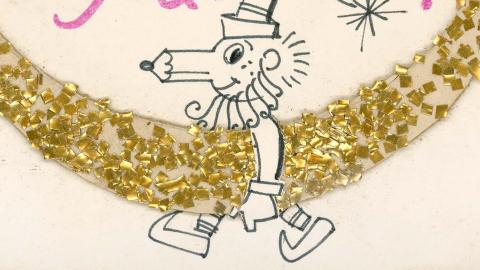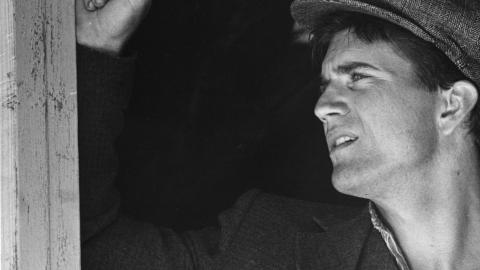

Patricia Lovell
Patricia Lovell Awarded the Ken G Hall Preservation Award

Patricia Lovell AM, famous for producing Gallipoli (1981) and Picnic at Hanging Rock (1975), was awarded the NFSA’s highest accolade — the Ken G Hall Preservation Award — in 2010. She was being recognised for her tireless work in promoting the need for film preservation and advocating the establishment of the NFSA. Pat kindly answered a Q&A giving us a personal insight into her career.
What qualities did you admire in Ken G Hall?
He was my good friend and mentor. He literally helped me and taught me how to cope with the industry. I met him first at an awards night when Picnic at Hanging Rock first won awards and he asked me for coffee to talk about the industry. He towered above me and was quite awe inspiring for a young producer, but he was direct and happy to share knowledge and encourage all of us who were working to reinvigorate the industry.
What teachings from Ken Hall did you apply to your own filmmaking?
Dogged determination to make the film you wanted to make, and ‘don’t let the bastards get away with anything’.
How has your view of feature filmmaking changed over the last thirty years?
Looking back, it was easier earlier on, but we didn’t realise it at the time. When all the funding bodies arrived it was great news for most people but there have been difficult times since then. Also the television channels would come in early on as investors as they wanted Australian product. Decision making in terms of funding is now much more complex. There is more pressure to get money from the private sector and private investors have become much more wary since there have been some huge projects that have not done well and given little return. So it is a lot harder for producers and directors to excite people about their projects, and keep them excited through the funding process. I would hate to be starting from scratch in the current climate.
What approach would Ken Hall take toward filmmaking in this current climate?
He would be striding around, demanding to see people in high places to put a case for Australian cinema. He would probably be running a campaign to shame Australians into seeing Aussie films first! But I know he would be thrilled to see the success of some of the films of recent years.
You were a member of the National Film Archive Advisory Committee of the National Library between 1981 and 1983. What were you advocating for the future of the Archive at that time?
We were really trying to convince the government to give the Archive more money as it was looking after our heritage. Raising the profile of what the Archive was doing both in preserving and also as a resource for current filmmakers to use. And better facilities and recognition of the work.
How did you decide to become a feature filmmaker?
I came from a television background. I was working on radio and then on the original Today show on Channel 7 and was interviewing fledgling filmmakers, including Peter Weir. I made two documentaries to work on my producing skills while at 7 — one on Changi and the other on the building and opening of the Opera House, Monster or Miracle? Sydney Opera House (1973). Then I read the book of Picnic at Hanging Rock, and having met Peter, I knew he was the one to do it and sent the book to him. It took him a while to read it as he was already involved in his first feature, but then he rang me and said ‘YES’. I took my last savings and took out the option… the rest is history.
What is your favourite among the features you produced, and why?
Gallipoli wins hands down. I had two excellent investors in Rupert Murdoch and Robert Stigwood who supported myself and Peter all the way. Everything came together – every single member of the cast and crew were committed to the story. We were all aware of the importance of the story in our history and everyone had an emotional investment in creating the film. I have never experienced such dedication on every level and every bit of that is on the screen.
The National Film and Sound Archive of Australia acknowledges Australia’s Aboriginal and Torres Strait Islander peoples as the Traditional Custodians of the land on which we work and live and gives respect to their Elders both past and present.


